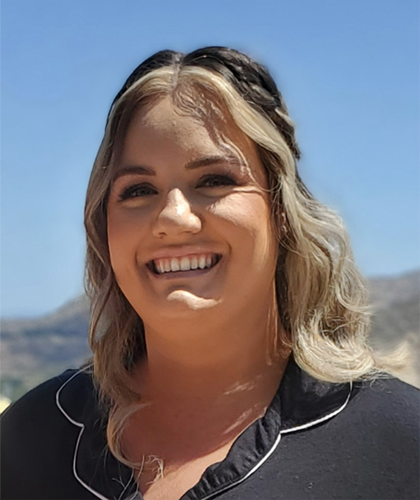
Only 37% of American adults have a living will. Although vastly different from an estate planning will, a living will is also an important document especially when looking into one’s end-of-life care.
So, what exactly is a living will? Is it important? This article will answer these questions and more.
Since a living will is a legal document, the guidance of a legal professional is most welcome. If you or someone close is looking into one’s end-of-life care options, our living will attorneys in Denver are here to help.
What Is a Living Will?
As mentioned above, a living will is NOT the same as the document that dictates how the estate of a deceased person is distributed. It is something that helps direct end-of-life medical care. In fact, the living will is also known as ‘health care directive’ or ‘advance directive.’
In Colorado, a living will can also be called ‘declaration to medical treatment.’
The living will basically lets the healthcare professionals know a person’s medical care preferences in the future, in case that person is no longer able to speak for themself. It includes information about artificial life-support measures, or what to do if the person ends up in a ‘persistent vegetative state.’
Why Is it Important to Have a Living Will?
It is important to have a legally binding document stating your end-of-life medical preferences because you will not be able to speak for yourself when the time comes. A prior verbal directive or even a written document may not be sufficient to enact your health-related decisions.
Having your wishes legally recognized will also alleviate unnecessary pressure from loved ones who may be forced to make such difficult decisions when you reach that state. This will also make it easier for all parties involved, especially if there are disagreements between family members about which choices to make.
When Does the Living Will Take Effect?
Rules vary from state to state. In Colorado, the living will can only go into effect 48 hours after two doctors agree, in writing, that a person has a terminal condition which has rendered them unable to speak for themself or that a person is in a persistent vegetative state.
A persistent vegetative state is defined as a state wherein the person is permanently unconscious and has suffered massive brain damage but not ‘brain death.’
The 48-hour grace period starts after the family members have been notified of the doctors’ evaluation of the person’s state. If there is an objection from the family during this time, a court hearing will be held to decide on the next steps, which may include withholding of life support.
If these conditions have been satisfied, the medical team will then continue or discontinue treatment based on the details specified in the directive.
Please note that the living will only applies to situations where death is imminent. If the person is unable to speak for themself but death is not imminent, the living will cannot take effect.
How Is a Living Will Prepared?
Here are some of the general requirements for preparing a living will in Colorado:
- The person should be at least 18 years of age.
- The person should be mentally and physically able to communicate their decisions.
- The document needs to be signed by two witnesses.
- The witness cannot be the person’s doctor, part of their medical team, or employed by the healthcare facility overseeing the care.
- The witness cannot be a beneficiary of the person’s estate.
- The witness cannot be a creditor of the person’s estate.
- The witness should be a mentally competent adult.
Although a person does not technically need a lawyer to prepare their living will, considering what is at stake, many still work with legal professionals for guidance. A living will attorney can help explain the options and their subsequent impacts on end-of-life care.
A lawyer can also help make sure that the document is legally binding by adhering to the requirements of the state.
Consult with us about your living will.
Other Commonly Asked Questions
What details are specified in a living will?
The document specifies a person’s preferences regarding the following medical procedures:
- Life support systems
- Ventilation
- Artificial nutrition or hydration
- Resuscitation
- Dialysis
- Organ and tissue donation
- Other details
The living will can also include details that will allow others to override the directive under certain circumstances, depending on the person’s preferences.
What happens if a person does not have a living will?
Although people are not required to have a living will, it is a useful and convenient document for all parties involved – the person who needs end-of-life care, the family members, and the medical team.
Federal law also requires healthcare facilities to inform terminal patients of their healthcare directive options while they are still physically and mentally able to make and convey decisions.
Choose Lewis & Matthews, P.C.
If you are planning for your end-of-life care, or dealing with other legal matters involving your family, our lawyers can help resolve difficult situations carefully, discreetly, and decisively – keeping the entire process as painless as possible.
Whether it’s preparing legal documents or appearing in court, we make sure you are treated fairly and with dignity every step of the way. With an experienced law firm beside you, you can reach the quickest and fairest resolutions.
Talk to us about your family law concerns.
Meet the Team
Find out more about the people that make up the Lewis & Matthews, P.C. team.

Jennifer Lewis – After she received her license in 1988, managing partner Jennifer Lewis has been helping people with their with family law, criminal law, estate planning and probate proceedings, personal injury and medical malpractice claims, zoning and land use planning, and general civil litigation concerns.
Ms. Lewis has practiced law in state and federal courts in Colorado, Missouri, and Kansas since. She believes in a compassionate, patient, and practical approach which helps the clients deal with the challenges that they face in family law matters.

Amanda Huber – As a legal assistant, Amanda helps with the daily tasks of sending legal correspondence and documents, preparing court filings, and scheduling, among other tasks. Amanda joined the firm in 2022 and has helped clients in all phases of their divorce.
Prior to joining Lewis & Matthews, Amanda worked at an upscale country club in San Diego, where she was born and raised.
Outside of work you can find Amanda wine tasting, gardening, and spending time with her beloved cat, Waffles.

Jackie Flanagan – In the last five years, office manager Jackie Flanagan has stayed on top of the daily operations of the firm, making sure everything is going well. She also brings to the table valuable insights, being a long-term resident of Colorado.
Get in touch with our team and let us help you with living will concerns.
Testimonials
Hear from our clients!
Counties We Serve
Greater Denver Metro Area
Address: 1325 S Colorado Blvd, Suite 503, Denver, CO 80222
(303) 329-3802
Summit County and Eagle County
Address: 114 Village Place, Suite 206, Dillon, CO 80435
Phone Number: (970) 468-0240




